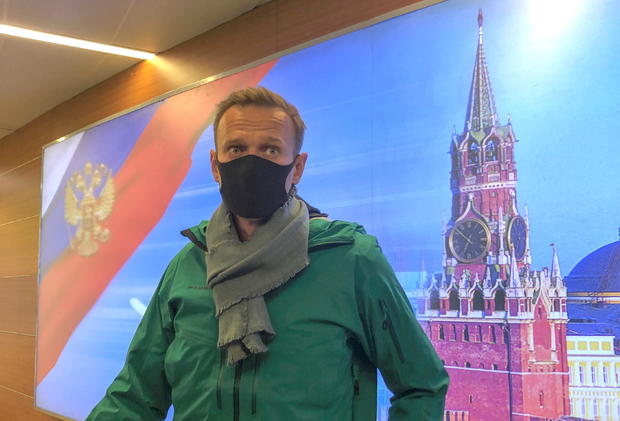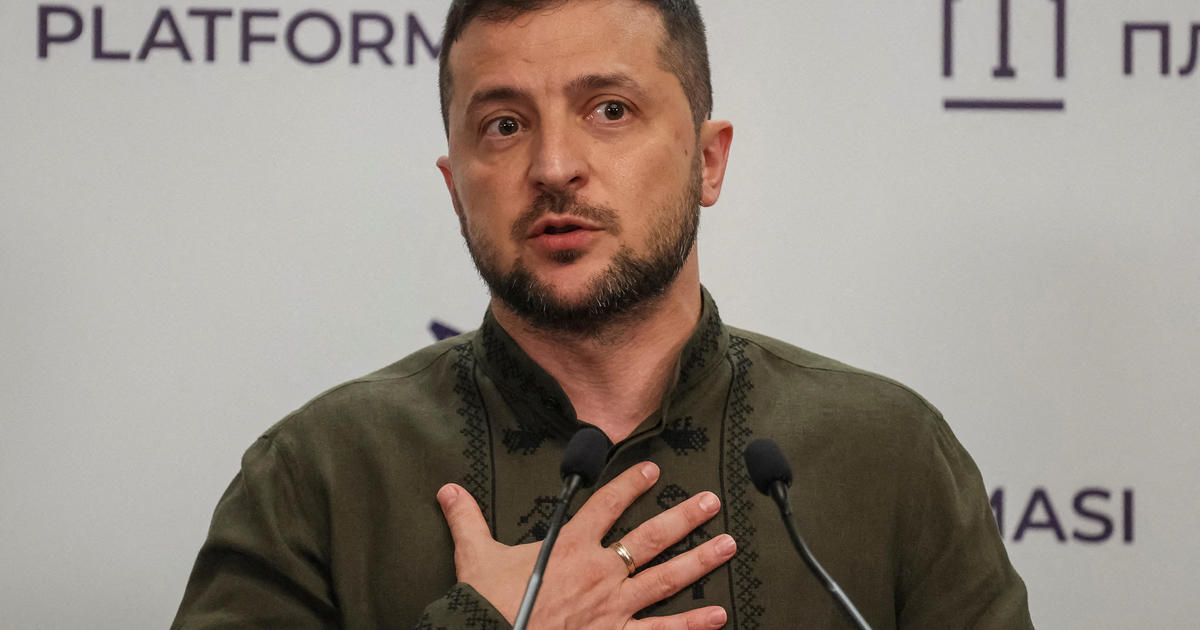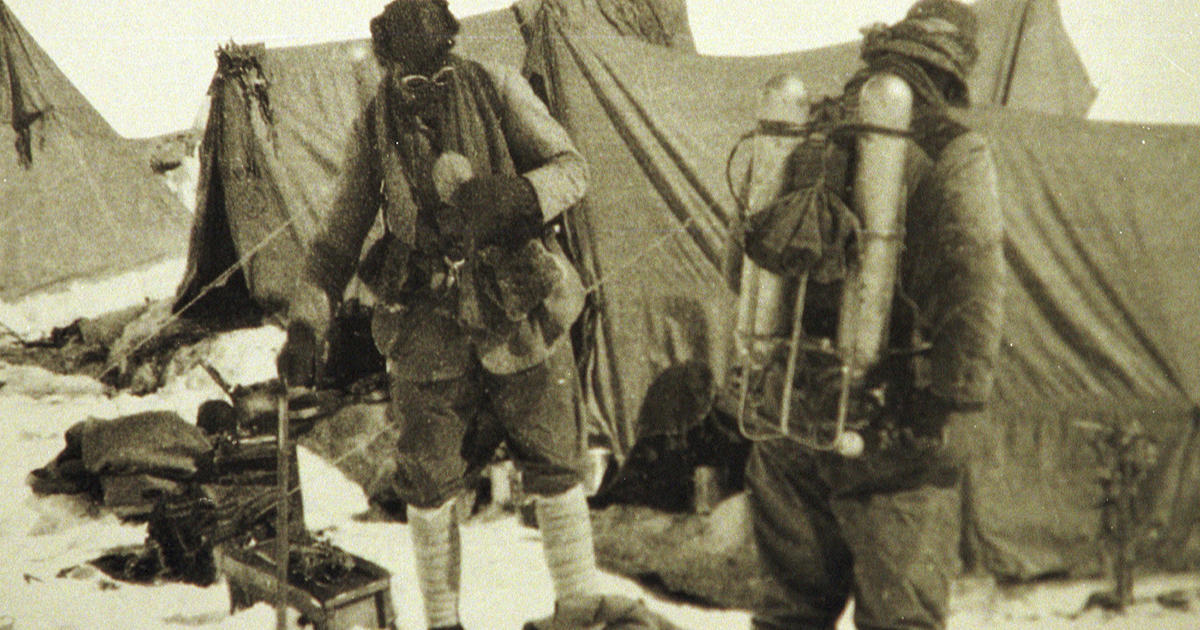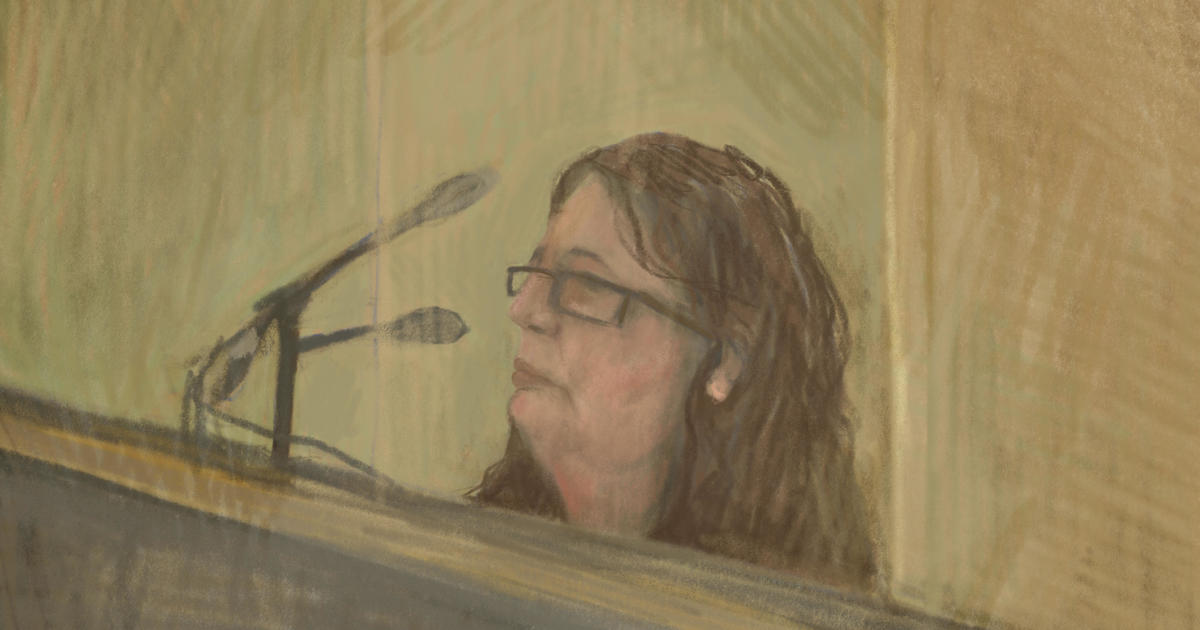Russian opposition leader Alexey Navalny detained as he returns to Moscow
Russian opposition leader and Putin critic Alexey Navalny was detained Sunday after he returned to Moscow. It was the first time he returned to Moscow since he was poisoned with a Soviet-era nerve agent over the summer.
"I am perfectly happy that I arrived," said Navalny. "This is my best day in five months. This is my home, I am not afraid and with an absolutely normal feeling I am going to the border control, I will walk out and go home because I know that I am right."
While the European Union has imposed sanctions of Russia for its alleged role in Nalvany's poisoning, the U.S. has not. President-elect Joe Biden's incoming national security adviser Jake Sullivan tweeted Sunday that Navalny should be "immediately released, and the perpetrators of the outrageous attack on his life must be held accountable."
"The Kremlin's attacks on Mr. Navalny are not just a violation of human rights, but an affront to the Russian people who want their voices heard," Sullivan wrote.
Navalny landed at Sheremetyevo Airport near Moscow around 8:45 p.m. local time. His flight from Berlin was diverted from its scheduled landing at another Moscow airport, where supporters and journalists were waiting. Dozens awaiting Navalny's arrival were arrested, according to local media.
Moscow's prison service, FSIN, said last week that Navalny would be detained if he came back, citing his failure to return for a prison service appointment in December related to a 2014 embezzlement case that Navalny says was politically motivated.
He told journalists upon his arrival that he was not afraid and that the criminal case against him was "fabricated."
Navalny was detained after he showed his passport upon arrival. His wife, Yulia, and others traveling with them were allowed to go through customs.
FSIN told Reuters in a statement that Navalny had been detained due to the alleged violations of his suspended prison sentence. FSIN said he will be held in custody until a court hearing later this month determines whether to convert his suspended sentence into a prison sentence of 3.5 years.
In August, Navalny collapsed while on a flight to Moscow from Siberia, where he had been campaigning against Putin's party in a local election. He later told "60 Minutes" he knew he was dying.
"Actually, every cell of your body just are telling you that, 'Body, we are done,'" he said.
The pilot, not knowing who he was and thinking he had suffered a drug overdose, diverted the plane to the city of Omsk as a passenger filmed Navalny writhing in pain. After his wife launched a public campaign to allow him to receive treatment, Navalny was allowed to fly to Germany, where he was put in a medically-induced coma.
Doctors in Berlin sent a sample of his blood to a military lab, which found traces of Novichok, a highly toxic nerve agent said to be 10 times more potent than sarin gas. Other labs confirmed the presence of military-grade Novichok, although Russian authorities have said they destroyed those types of chemical agents.
Navalny said he was "sure" that Russian President Vladimir Putin had ordered the poisoning himself, an accusation the Kremlin has denied. Russian authorities have denied any role in the poisoning, despite international outrage that led to the European Union imposing sanctions.
In December, Navalny said he impersonated an official in the Kremlin's Security Council and extracted an admission of guilt from a toxins expert with the FSB security service.
In a video of the conversation published by Navalny, the alleged FSB agent says agents placed poison in Navalny's underwear.
Putin's spokesman, Dmitry Peskov, described Navalny as a "sick" man who was suffering from "delusions of persecution" and also exhibited "traits of megalomania."
"They say he compares himself to Jesus," said Peskov.
AFP contributed to this report.




